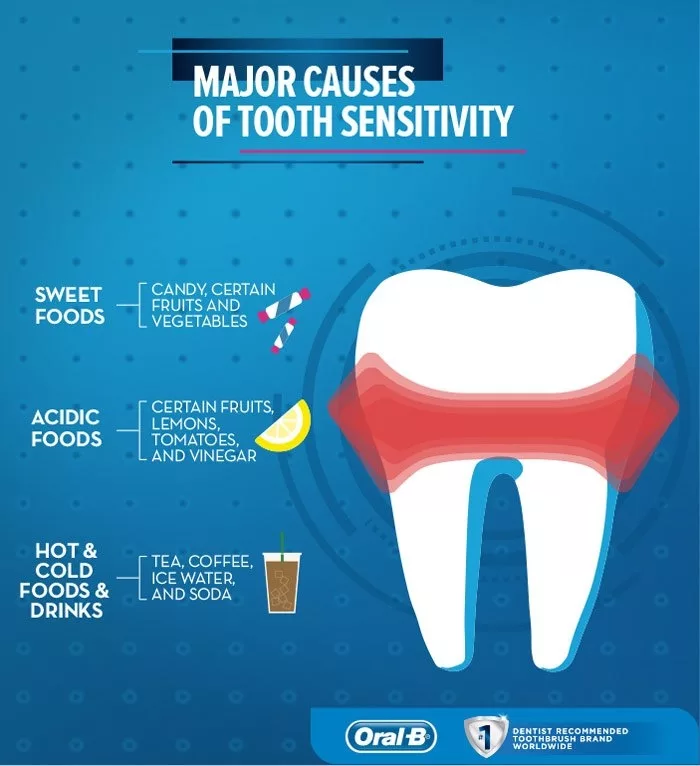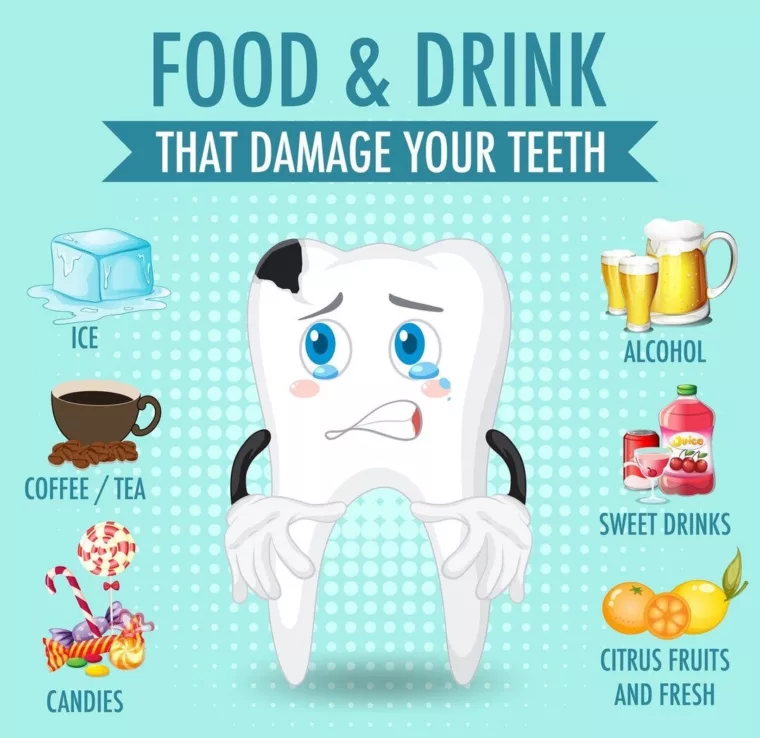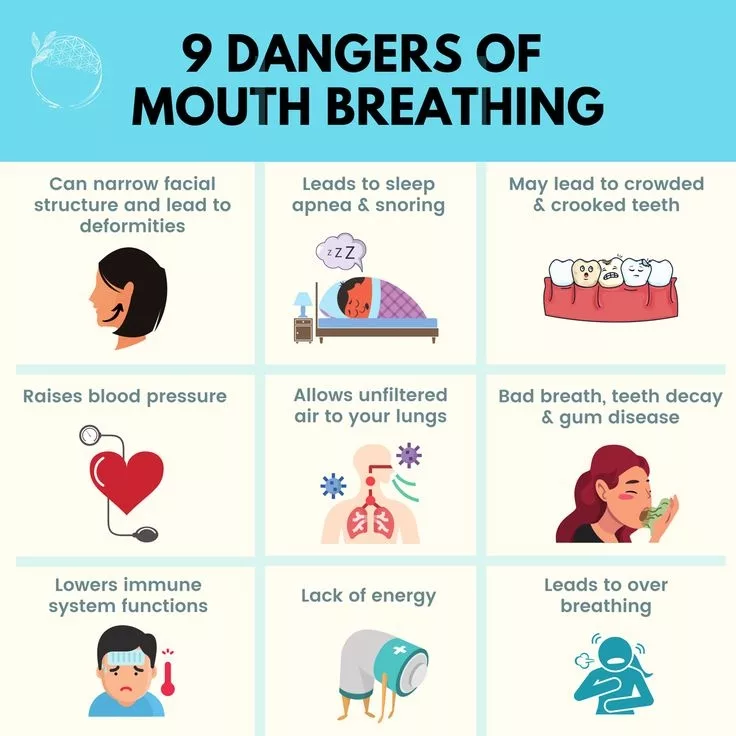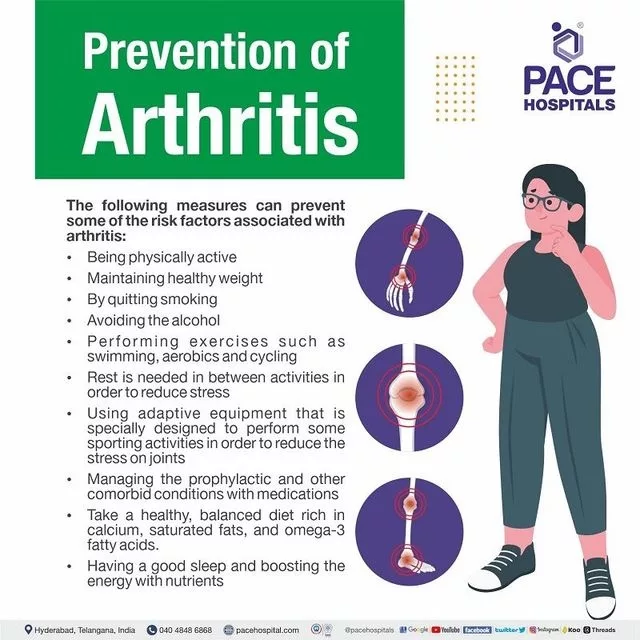Tooth Sensitivity
Preventing Tooth Sensitivity with Proper Brushing!
Hello! As the weather gets colder, many of you might be feeling sensitivity to the cold. For those experiencing this, today I want to share some brushing tips that can help prevent tooth sensitivity. Let’s protect our teeth with proper brushing! Shall we dive in?
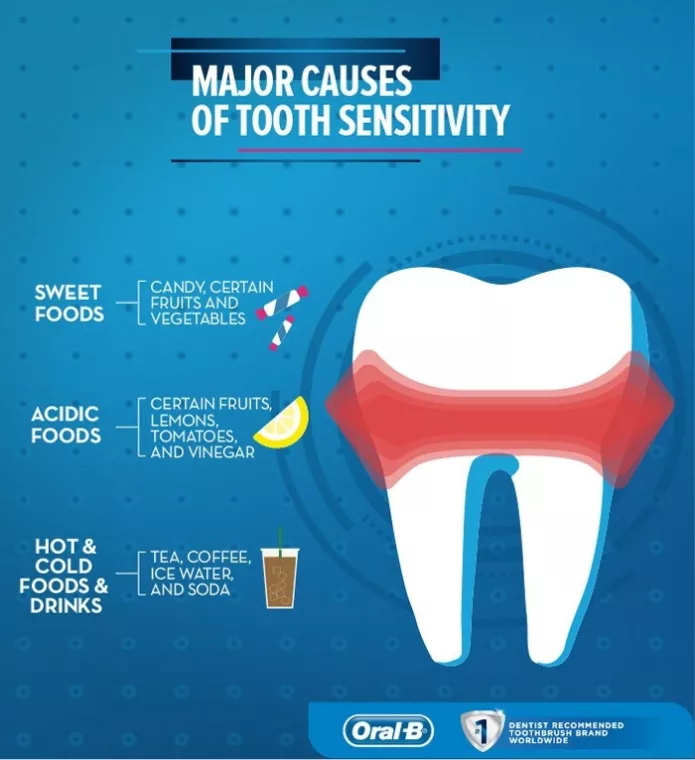
What is Tooth Sensitivity?
Tooth sensitivity is a condition where pain is felt due to sensitivity in the teeth when consuming cold, hot, or sweet foods, and it is a common symptom experienced by many people. This sensitivity occurs when the enamel on the teeth weakens or when the nerves between the teeth and gums become exposed. Sensitivity is particularly pronounced when consuming cold water or ice cream, leading to discomfort in daily life. Therefore, if these symptoms persist, it is important to consider proper management and preventive measures.
Major Causes of Tooth Sensitivity
There are several primary causes of tooth sensitivity, with the most common being enamel loss. This can occur due to excessive consumption of acidic foods or improper brushing habits. Additionally, gum disease, tooth wear, and even cavities can contribute to sensitivity. Psychological factors such as stress can also impact gum health, and natural changes that occur with aging may lead to sensitivity. Thus, understanding these causes and knowing how to prevent them is essential.
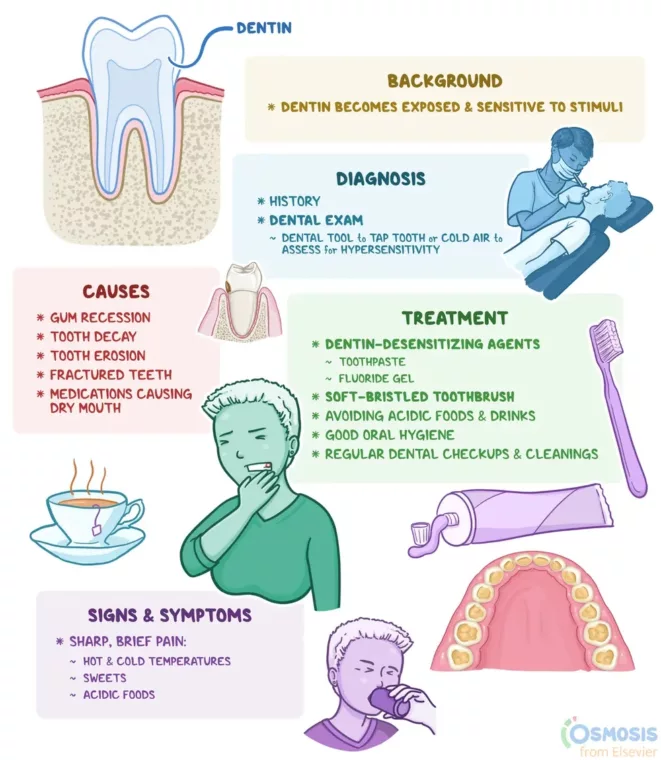
The Importance of Choosing the Right Toothbrush
Choosing the right toothbrush is crucial for preventing tooth sensitivity. Opting for a soft-bristled toothbrush can effectively remove plaque without irritating the gums. Additionally, the size of the toothbrush head should match the user’s oral structure, and the handle should provide a comfortable grip. This helps reduce unnecessary pressure and minimizes the stress placed on teeth and gums during brushing. Proper toothbrush selection plays a significant role in maintaining long-term oral health.
Effective Use of Toothpaste
Toothpaste is essential for maintaining oral health, and it’s important to choose one that effectively prevents sensitivity. Fluoride toothpaste strengthens tooth enamel and helps prevent cavities. Toothpaste specifically designed for sensitive teeth can be useful in alleviating sensitivity symptoms. When using these products, it is important to apply a sufficient amount and brush for at least two minutes. Additionally, checking the ingredients to ensure there are no allergies to specific components is necessary. Effective use of toothpaste is vital for maintaining oral health.
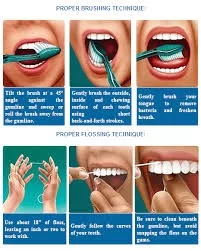
Step-by-Step Guide to Proper Brushing Techniques
Proper brushing techniques are a key factor in preventing tooth sensitivity.
- First, position the toothbrush at a 45-degree angle between the teeth and gums and move it gently in a circular motion.
- Second, brush both the inner and outer surfaces of the teeth delicately, ensuring not to neglect the back of the teeth.
- Third, don’t forget to brush your tongue to prevent bad breath.
- Finally, rinse your mouth thoroughly after brushing, and using a mouthwash can enhance effectiveness. By following these step-by-step brushing techniques, you can help prevent sensitivity symptoms.
Lifestyle Habits to Alleviate Sensitivity
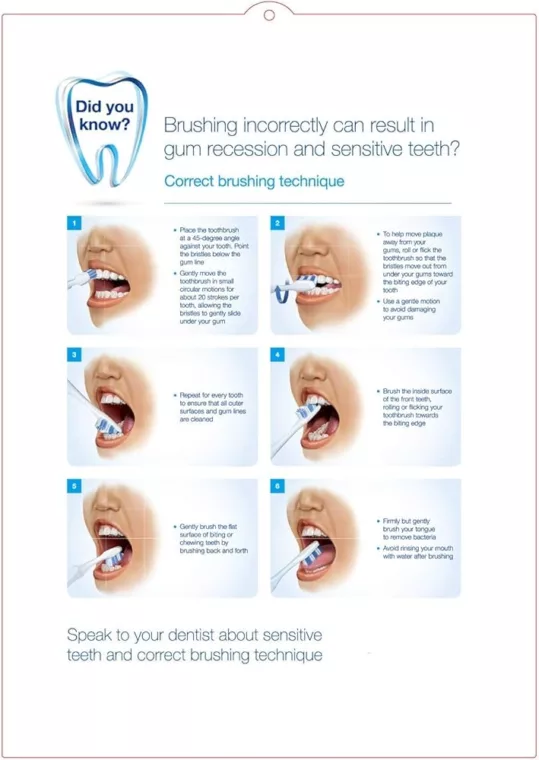
Lifestyle habits are very important for alleviating sensitivity.
- First, reduce the intake of acidic foods and beverages while maintaining a balanced diet to support dental health.
- Second, ensure adequate hydration to prevent dryness in the mouth.
- Third, managing stress and engaging in regular exercise can contribute to overall health.
- Lastly, avoiding smoking and practicing proper oral hygiene can help prevent sensitivity. Consistently practicing these habits can significantly alleviate sensitivity symptoms.
The Necessity of Dental Visits and Regular Check-ups
Visiting the dentist is essential for preventing sensitivity and for early detection. Regular check-ups allow for monitoring the health of teeth and gums and for early treatment of potential issues. Additionally, it is important to learn proper brushing methods and oral care techniques with the help of professionals. Generally, it is recommended to visit the dentist every six months, and especially if sensitivity symptoms are present, more frequent visits are advisable. These regular check-ups greatly contribute to long-term oral health.

Additional Prevention and Management Tips
Additional tips for preventing sensitivity include considering the use of a mouthguard, especially if you have habits of grinding or clenching your teeth. Regularly using a mouthwash to reduce bacteria is also important. Finally, continuously monitoring the health of your teeth and seeking professional diagnosis immediately if any changes are noticed is wise. These prevention and management tips can effectively help in preventing tooth sensitivity.
